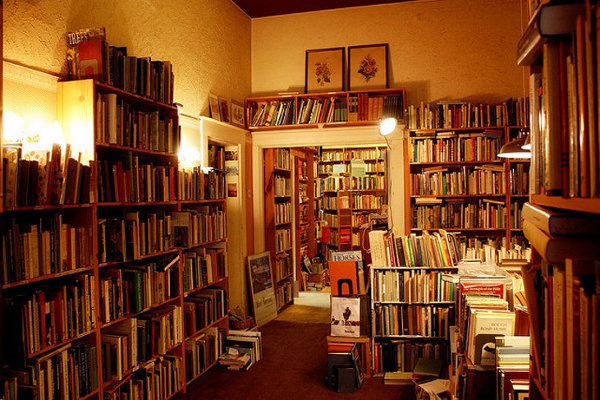A Decline in Black-Owned Bookstores Signals a Worrisome Publishing Trend

From NorthStar News and Analysis and our content partner New America Media:
The number of African-American-owned bookstores has dropped significantly since the late 1970s and 1980s due to a variety of factors, including corporate control of the Internet, waning literacy and fiscal mismanagement.
In the 1970s and 1980s, more than 1,000 black-owned bookstores were in business in the United States. Now only slightly more than 100, possibly 116 to 117, if that many, remain open, according to Troy Johnson, founder of the African American Literature Book Club (AALBC.com), which is based in New York.
“I would hope that I am wrong,” Johnson told The NorthStar News & Analysis. Johnson added that many of the black-owned bookstores may be not be true book stores, but are gift shops that also sell books. Others may be white-owned bookstores that have a large inventory of books that target African-American readers.
Founded in 1960, Marcus Books is the nation’s oldest, independent, black bookstore, but the San Francisco store was on the verge of being closed by the owners of the building where it is housed.
Earlier this month, Marcus’ owners reached an agreement to purchase the building for $2.6 million. Marcus’ owners, Karen and Greg Johnson, have until the end of February to raise the funds and close the deal, according to local news reports. The current owner purchased the building in a bankruptcy sale. Marcus Books operates a second store in Oakland, Calif.
In 2012, Johnson posted on his blog, titled “The Death of the Black-owned Independent Bookstore," that 141-black-owned bookstores across the nation had closed since the late 1990s.
Johnson operates the website, HURIA Search. HURIA, which means freedom in Swahili, lists the nation’s black-owned bookstores. In Sept. 23, 2013, Johnson wrote in an e-mail message that corporate control of the Web, the economy and waning literacy are killing black-owned bookstores.

Corporate control of the Web includes Amazon.com, which can use the Web against independent black-owned bookstores by beating them on book variety, volume and price.
“The challenges are greater than any time I’ve seen in almost 20 years I’ve been doing business on the Web,” Johnson wrote. He noted that the number of Google inquiries for African-American books and African-American authors has declined from 2004 to 2013.
Google also noted that interest in African-American literature has declined and that younger people tend to read much less than the older generation.
The failure of Black Issues Book Review, which went out of business in 2007, also contributed to the decline in black-owned bookstores.
Angela P. Dodson, executive editor of Black Issues Book Review from 2003 to 2007, said because the publication no longer exists, black readers don’t know to go into a bookstore and ask for books written by black authors.
“The books are not getting any publicity,” Dodson said.
Johnson noted that books by E. Lynn Harris, author of Invisible Life and Terry McMillan, author of Waiting to Exhale, boosted the growth of black-owned, independent bookstores. "The books fueled the industry and there was a greater demand for black books,” Johnson said.
This is a list of black bookstores and some black books. Some of the stores have a physical location and others do not. The list includes 50 black-owned, independent bookstores. Here is a list of the hottest books by black authors including, “The Good Lord Bird,” by James McBride, which won the 2013 National Book Award for Fiction.






























































































































































































































































































































